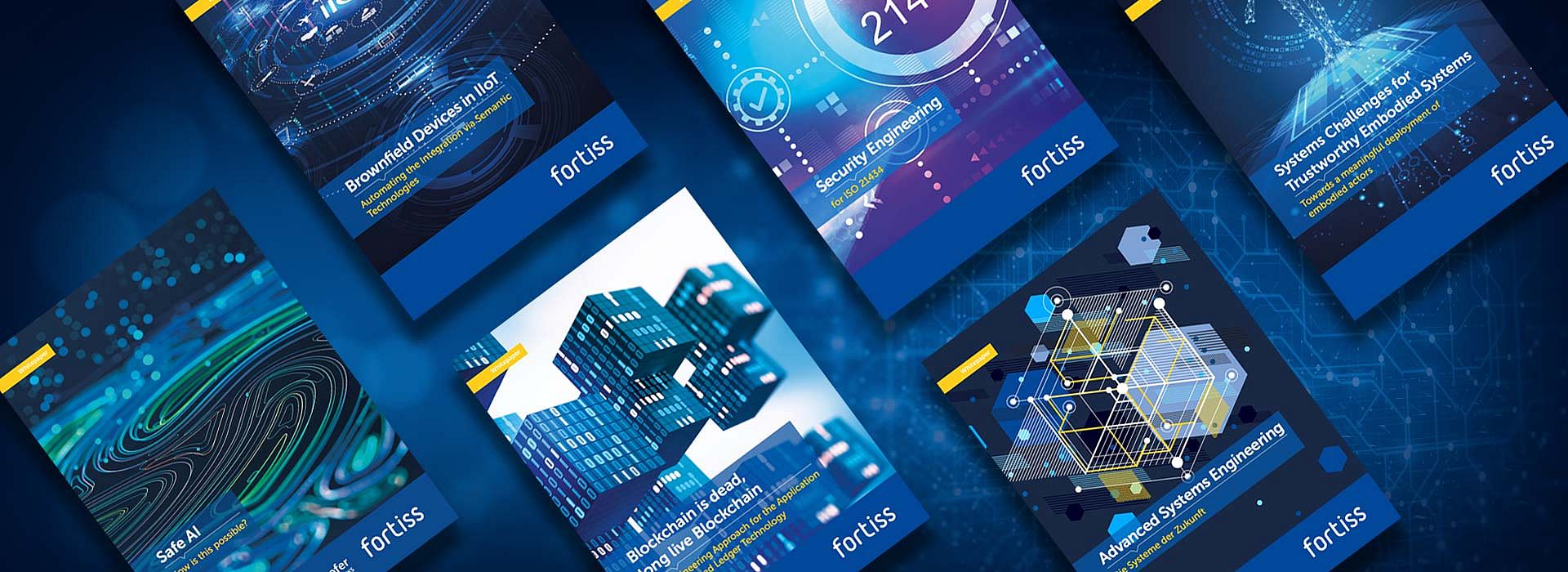
Current standards and technology trends
Latest fortiss Whitepaper
The new fortiss whitepaper provides in-depth insights into the research and development directions of the next-generation mobile network, 6G. It illustrates how human-centered, AI-driven, and sustainable network architectures will enable entirely new applications in industry and society from 2030 onward – from smart cities and digital twins to innovative healthcare technologies.
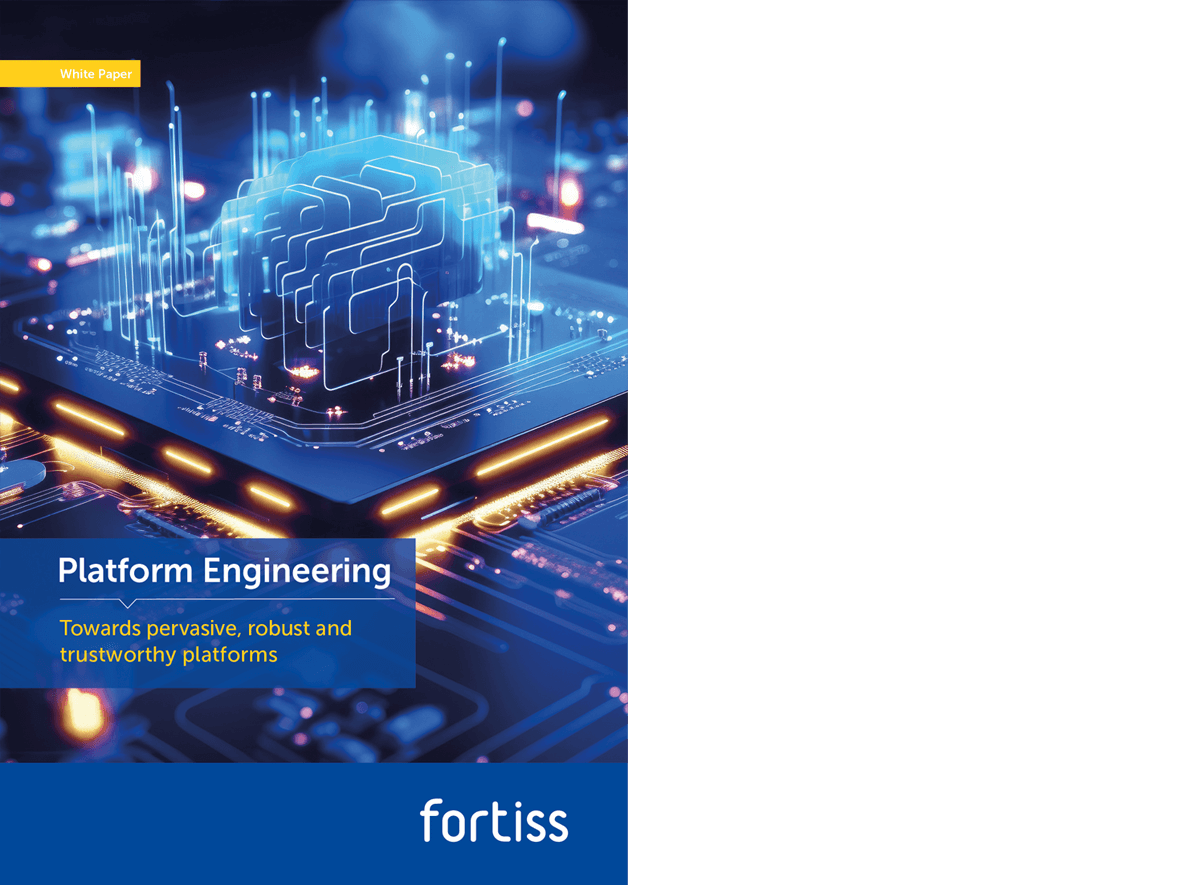
The competence field of Platform Engineering conducts cross-domain research for developing pervasive, robust, and trustworthy platforms. The approach of fortiss encompasses a broad spectrum of methods, including semantic knowledge representation, formal requirement and capability matching, as well as traceability mechanisms for verifiable argument-based transactions between heterogeneous actors. This practice-proven engineering method and its associated tools allow for rapid prototype development, capturing relevant perspectives and facets for making informed decisions and steering the journey towards effective platformization. In this whitepaper fortiss showcases how Platform Engineering can be applied successfully across domains.
![[Translate to English:] fortiss Whitepaper Requirements Engineering – A Critical Determinant of Project Success [Translate to English:] fortiss Whitepaper Requirements Engineering – A Critical Determinant of Project Success](/fileadmin/user_upload/Dateien_MIT_Referenzen_-_Zuordnen/Bilder/fortiss_whitepaper_requirements_engineering_mini.png)
Requirements Engineering is crucial for software development projects. It involves identifying and processing stakeholders' requirements, documenting them in a structured and traceable format, and ultimately implementing them. In this whitepaper, fortiss provides an overview of Requirements Engineering and its relevance to project success. We also discuss ongoing research, including the role of humans in Requirements Engineering and the limitations of agile approaches. Practitioners can use our free tool to benchmark their practices. We also explore challenges in practice-oriented research, such as regulatory compliance, data-driven approaches, and human-centered environments.
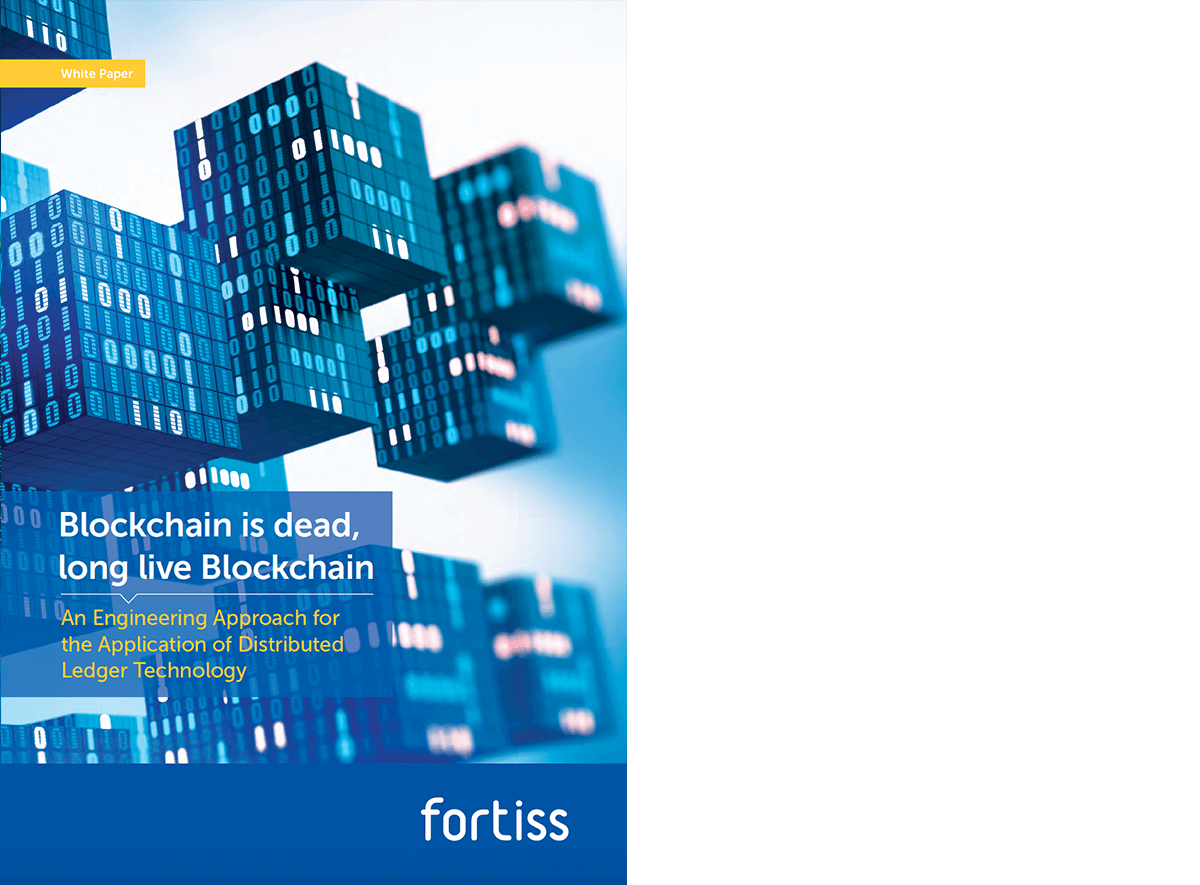
Distributed ledger technologies (DLT) attract a large audience. However, the hype and the crises of cryptocurrencies make evaluating the tool's true value in coin-independent use cases difficult. To address the unclarity, this whitepaper combines 5 years of academic and practical contributions into an online decision-making and blueprinting framework. Starting from “should I use DLT?”, the framework helps users avoid risky trial-and-error, guiding their business requirements towards an architectural canvas of DLT and non-DLT components, and fostering collaboration between managers and engineers.
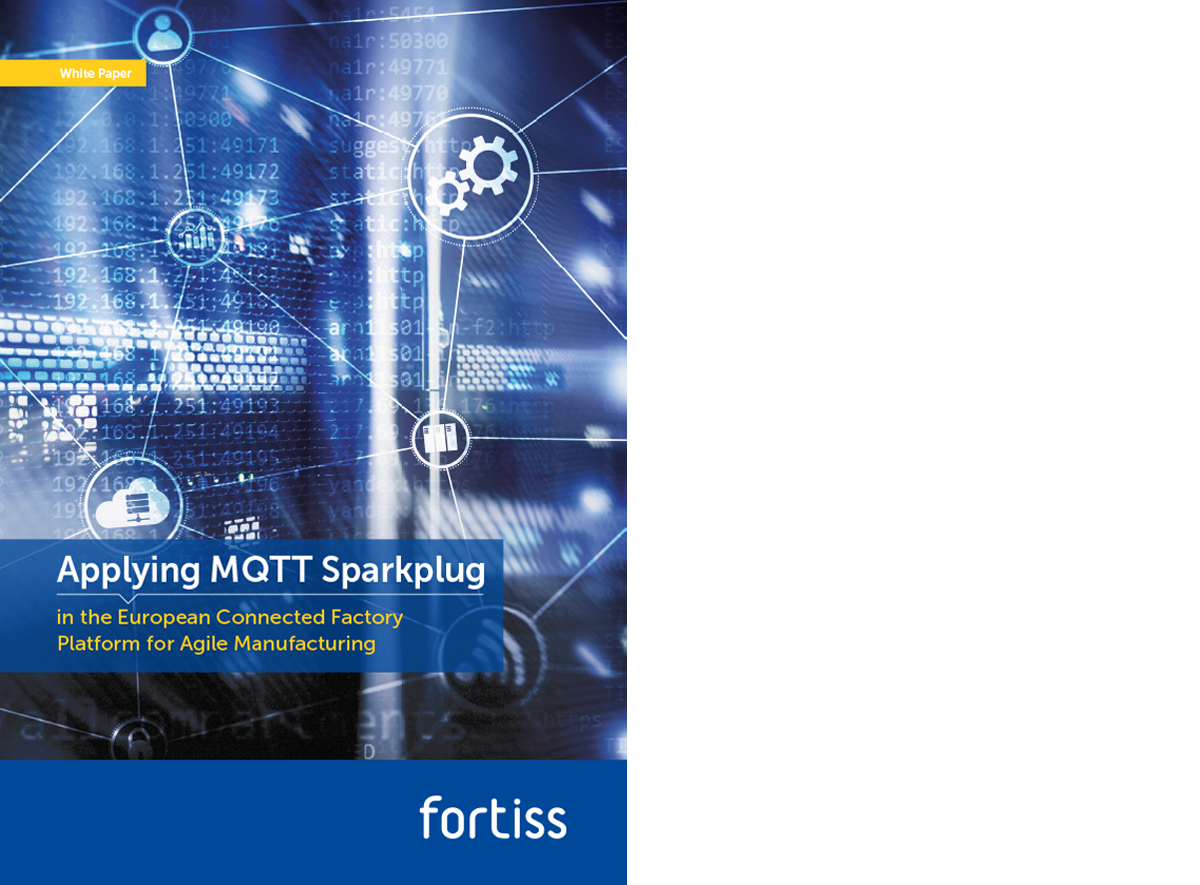
The whitepaper describes the implementation of MQTT Sparkplug protocol in the European Connected Factory Platform for Agile Manufacturing (EFPF), which aims to provide a standardized, scalable and secure communication infrastructure for Industry 4.0 applications. The paper details the technical aspects of the MQTT Sparkplug protocol, including its use of a data-centric publish-subscribe architecture and support for plug-and-play device discovery. The authors explain how this protocol has been integrated into the EFPF architecture and also highlight the benefits of using MQTT Sparkplug. Finally, the authors discuss future developments and potential applications of this technology.
Download pdf
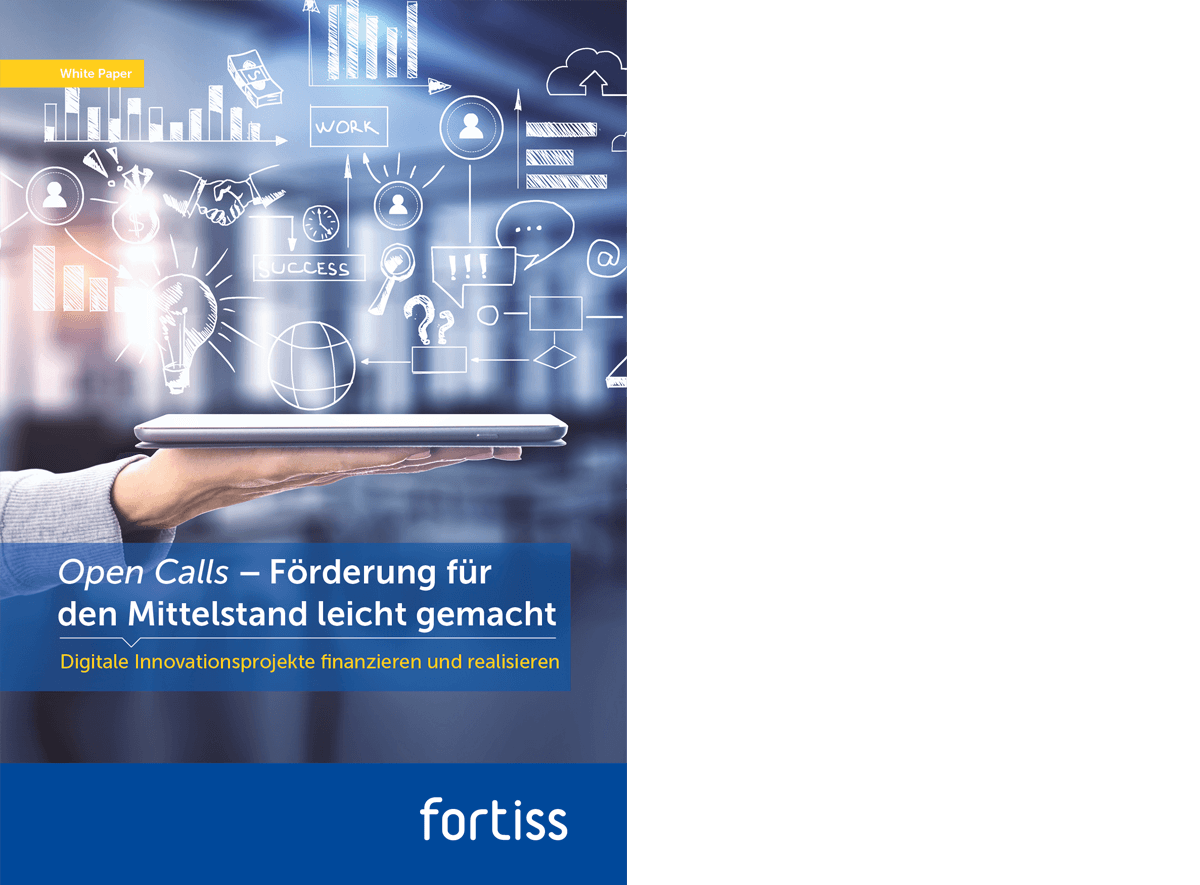
Innovation is currently on everyone's lips when it comes to the future competitiveness of German companies. But innovations always require a certain financial investment, which poses immense challenges for many, especially small and medium-sized enterprises. Government funding programs can cushion these investment costs, at least in part, and thus support companies in tackling urgent innovation issues. One of these funding instruments of the European Commission is the so-called Open Calls. Read this short whitepaper to find out how this unbureaucratic and attractive funding instrument works and who can support you.
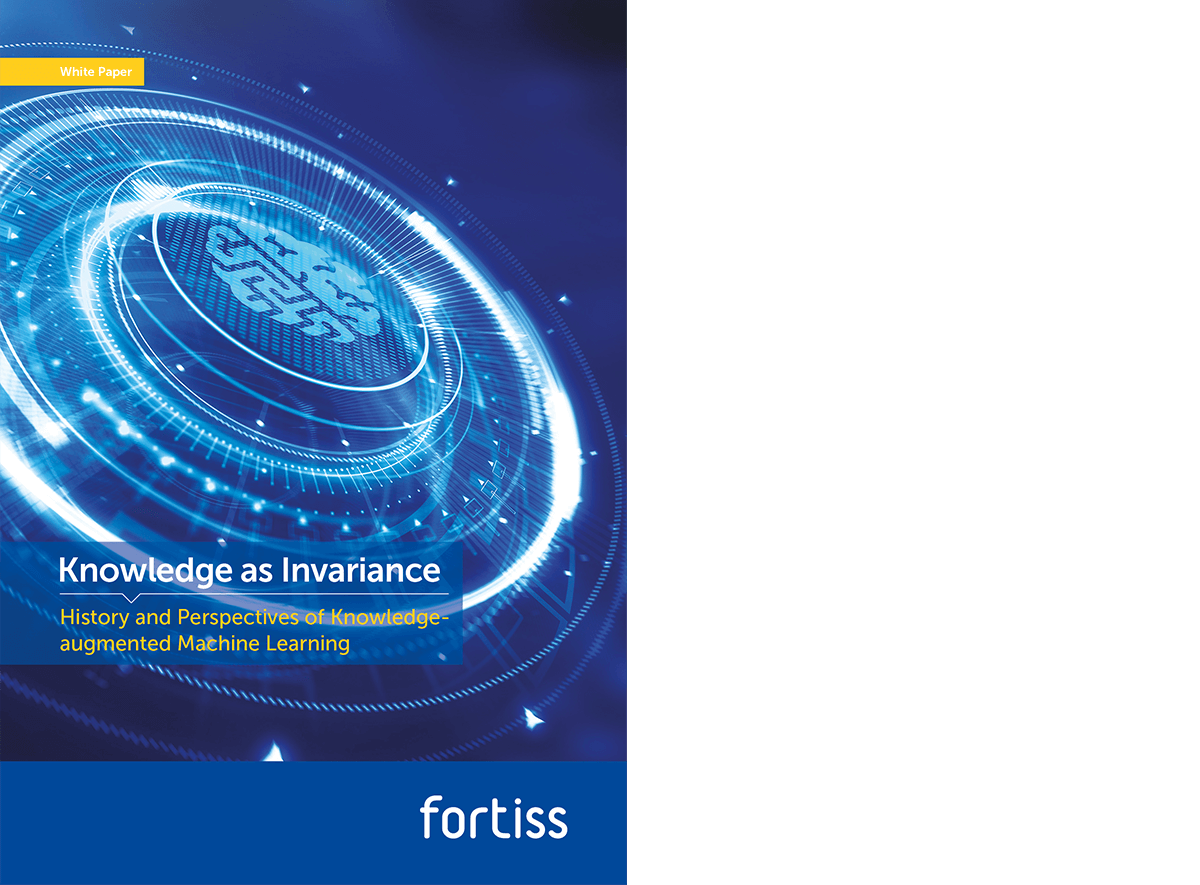
Major weaknesses of current deep learning models are, e.g. their lack of adaptability to changes in environment or their incapability to perform other kinds of tasks than the one they were trained for. This whitepaper discusses perspectives of knowledge-augmented machine learning (ML). Ongoing from approaches that infuse task-specific domain knowledge into ML models, we focus on architectural devices and learning paradigms that permit the models to acquire knowledge on their own. In this context, invariance plays a crucial role in enabling ML models to become intelligent systems. The paper traces the history of knowledge-augmented ML and explores its potential applications and benefits.
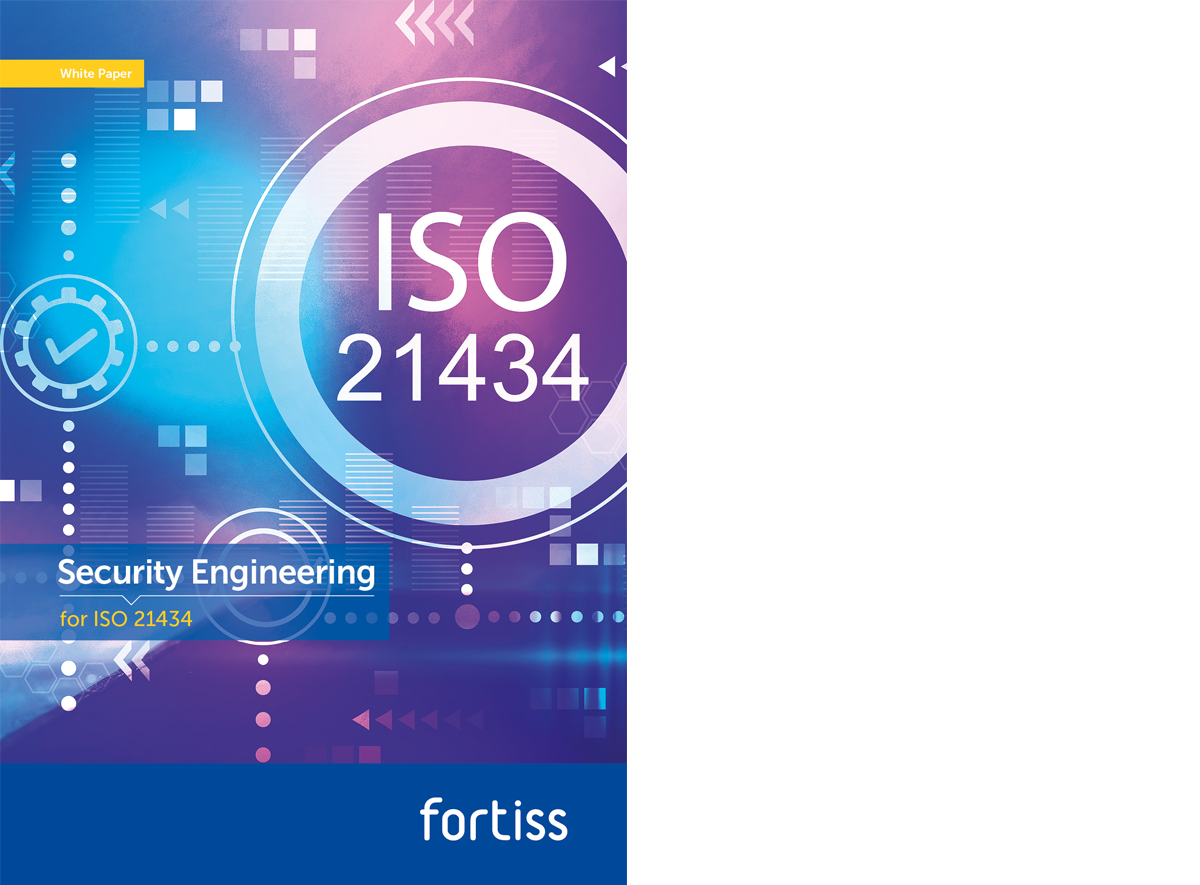
The ISO 21434 is a new standard that has been proposed to address the future challenges of automotive cybersecurity. This whitepaper takes a closer look at the standard to help engineers to understand the ISO 21434 parts, the key activities to be carried out and the main artefacts that shall be produced. As any certification, obtaining the ISO 21434 certification can be daunting at first sight. Engineers have to deploy processes that include several security risk assessment methods to produce security arguments and evidence supporting item security claims. This paper proposes a security engineering approach to support the automation of such processes.
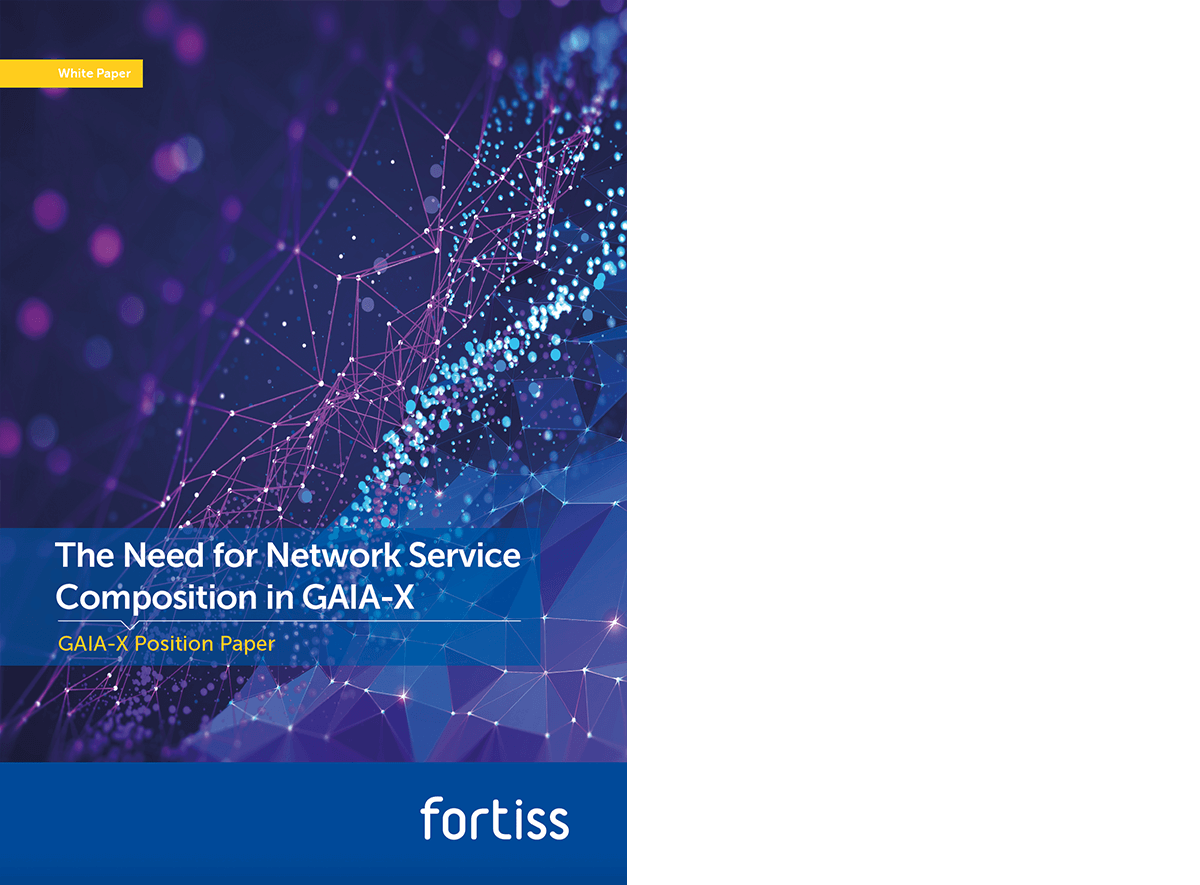
This whitepaper discusses the need for network service composition in the context of the GAIA-X initiative, which aims to create a secure and interoperable data infrastructure for Europe. The paper explains that network service composition refers to the ability to combine and orchestrate different network services to create more complex and advanced functionalities. The paper outlines the technical challenges and requirements like the need for standardized interfaces and protocols, security, and data protection. It proposes a framework for implementing network service composition in GAIA-X and emphasizes the importance of network service composition for realizing the full potential of GAIA-X.
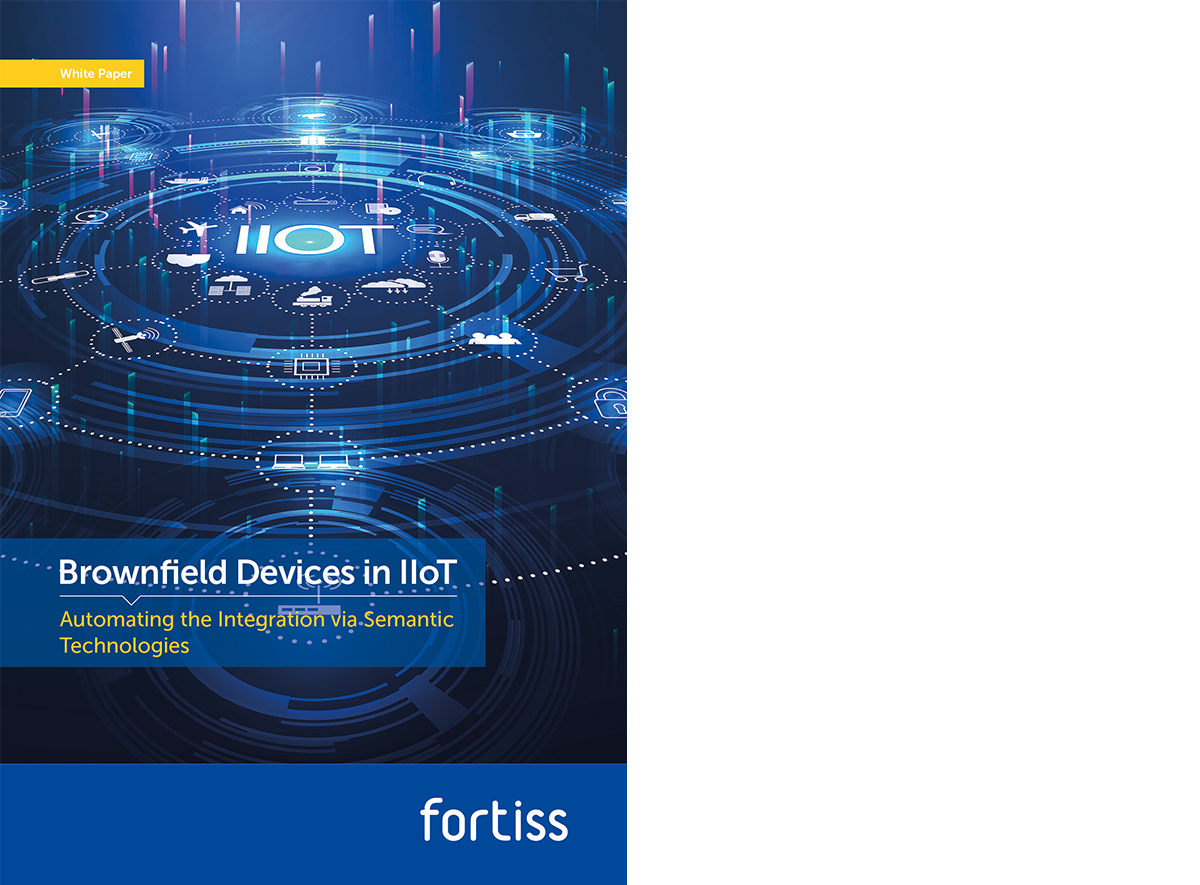
This whitepaper provides an overview of semantic interoperability aspects within the context of the Industrial Internet of Things (IIoT) by fortiss, specifically focusing on concepts that can assist a much-needed automated integration of Operational Technology into Information Technology, from an end-to-end perspective. The whitepaper provides the fortiss vision for such integration to happen, namely, aspects that need to be addressed from both an application/session layer and networking layer perspective. It also describes a specific instantiation being under development by fortiss within the context of its Industrial IoT Lab, namely, the “IIoT Lab Brownfield device integration demonstrator”.
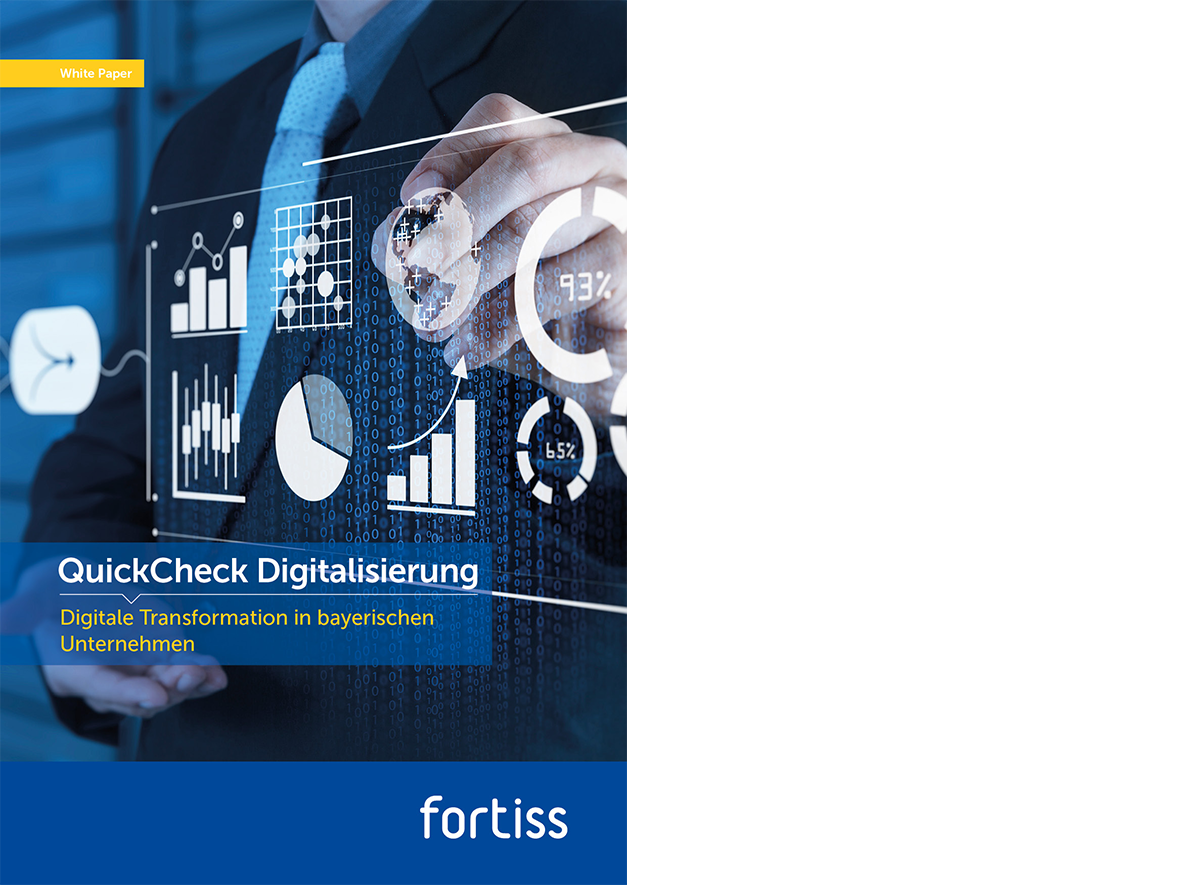
Digitization affects all areas of businesses. Digitization is also becoming increasingly important for the Bavarian economy in order to remain a leader in the respective industries. However, correctly assessing the opportunities associated with the use of digital technologies and successfully exploiting them through digital transformation is a major challenge for all companies. fortiss supports these challenging tasks with the QuickCheck Digitalization. This whitepaper presents, in particular, the current status of digitization of Bavarian companies in the metal and electrical industry.
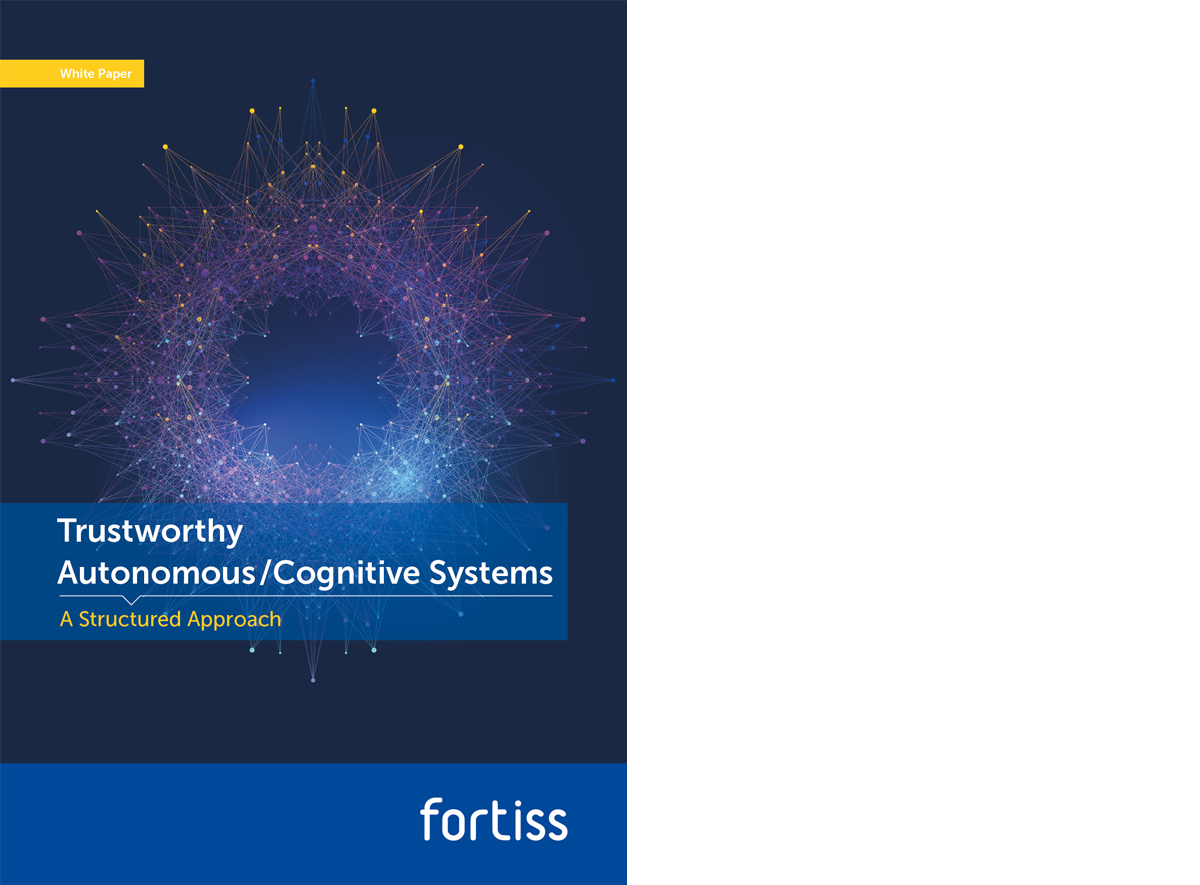
Autonomous systems with cognitive features are on their way into the market promising higher performance in complex situations. The key is to implement cognition into machines driven by artificial intelligence (e.g. neural networks). Unfortunately, with such new technologies of high complexities, there is no generally accepted approach to ensure trustworthiness (e.g. safety, security, usability, ethics). This whitepaper fills this gap impacting the latest VDE-AR-E 2842-61 “Design and Trustworthiness of autonomous/cognitive systems”. It describes a structured risk-based approach and new methods for trustworthy AI-based autonomous/cognitive systems in development and operation.
Download pdf
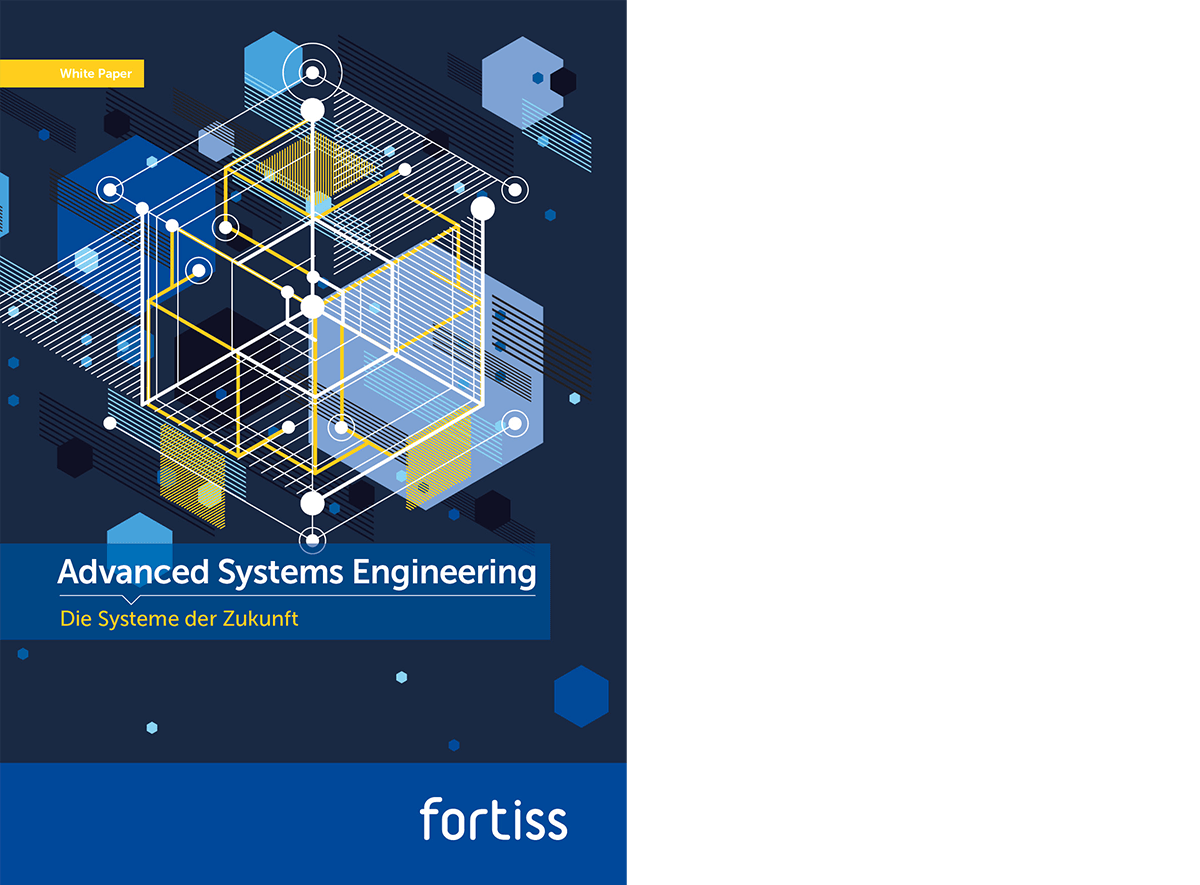
The systems and technical products to be developed today and in the future are subject to the highest requirements, and their characteristics also influence the development approaches required for them. Therefore, the following questions arise: By which characteristics is Advanced Systems Engineering (ASE) characterized? And which approaches does Model-based Systems Engineering (MBSE) follow? The developed SPES framework and its successor project CrESt offer an elegant solution to this question. This whitepaper presents how exactly they work and which methodological extensions they offer for MBSE.
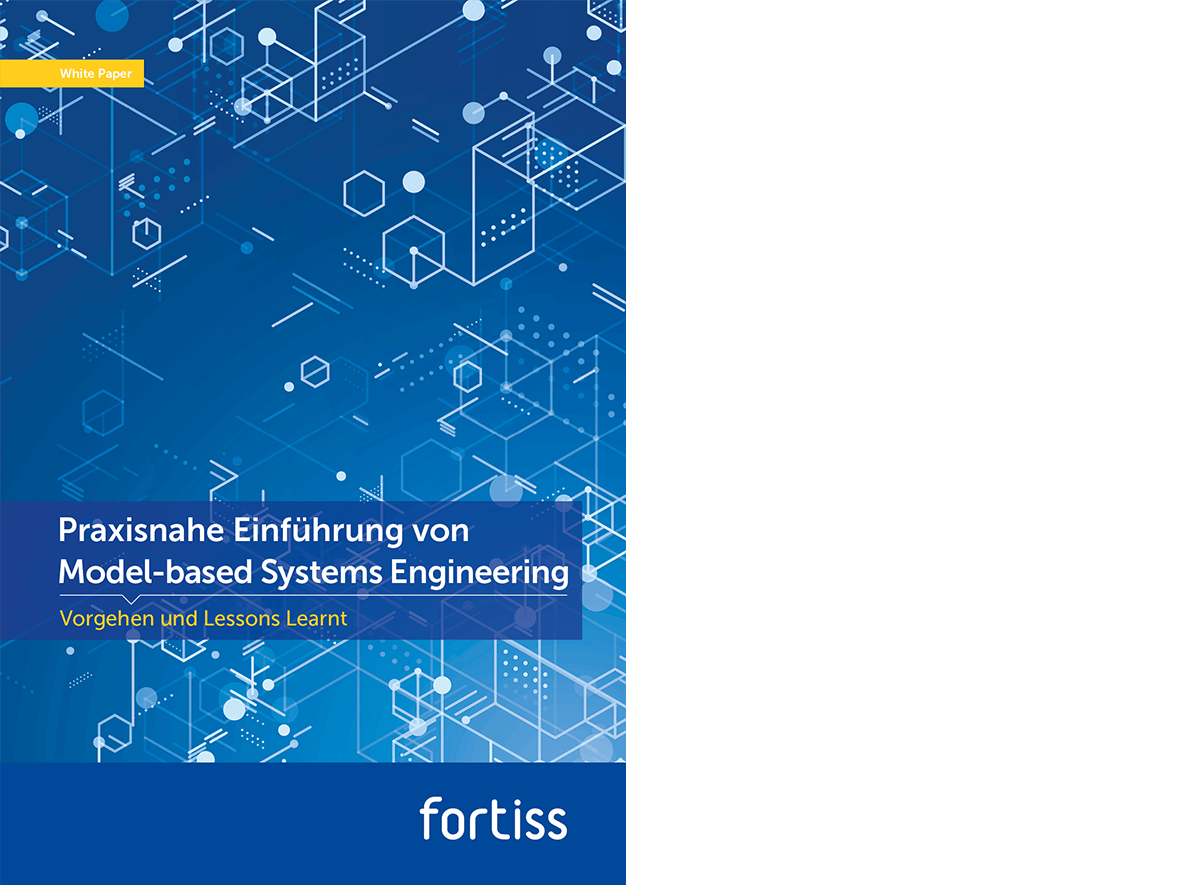
Model-based systems engineering (MBSE) offers numerous advantages for the development of complex cyber-physical systems. In addition to managing system complexity by focusing on dedicated aspects in individual model views, semantically founded models can also provide the basis for automating a variety of tasks in the development process.
This whitepaper explains the challenges of implementing MBSE in terms of methodology, modeling languages, tools, training, organization, and management. Using the scientifically based SPES methodology, we explain the basic concepts of MBSE and finally present an approach for the guided introduction using a maturity model.
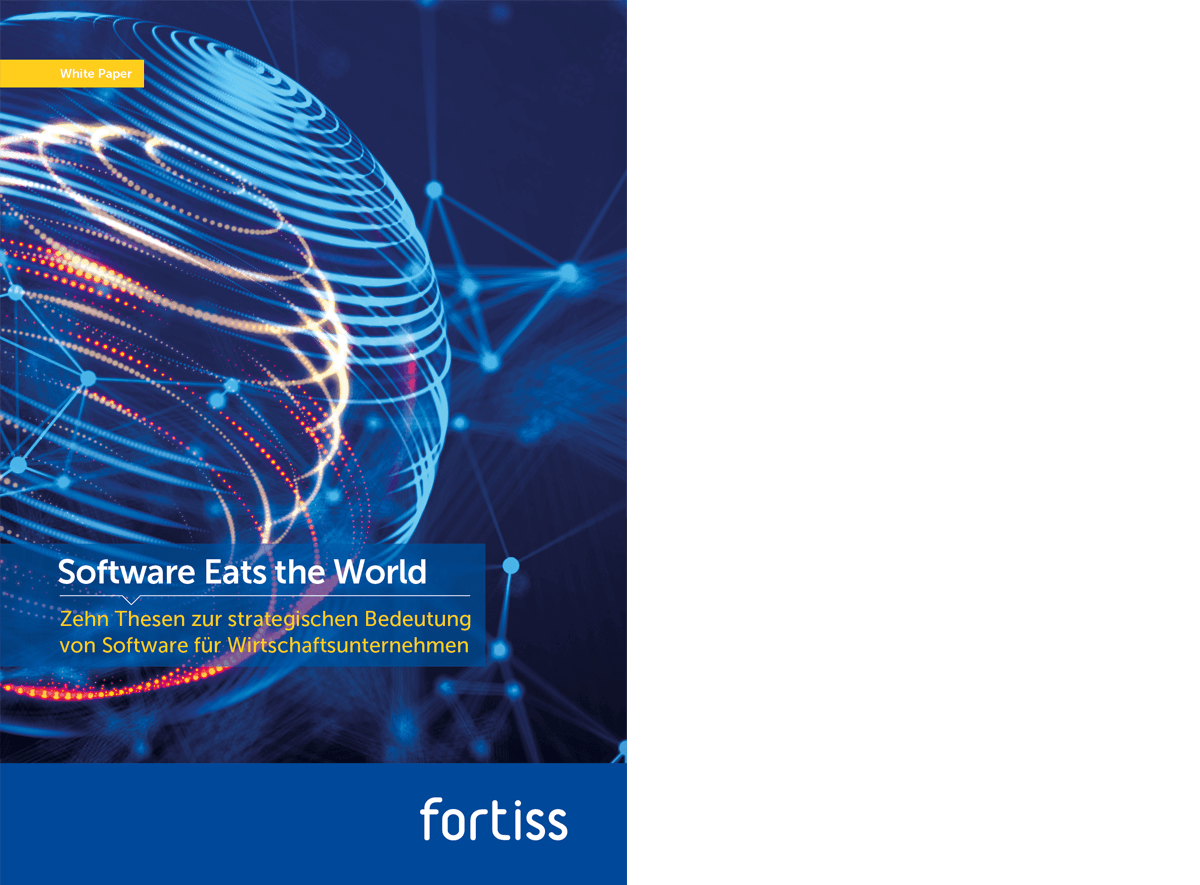
The innovative power of information and communication technology (ICT) is unbroken: rapid technological progress in electronic hardware, high demand in private and business environments, assistance and information are just a few examples of the drivers of profound innovations in the market and technology. In this whitepaper, ten theses are put forward that highlight the importance of software in the ICT sector. In addition, the questions are clarified as to why software has been used for several decades and has hardly been developed further and what patterns are incumbent upon it.
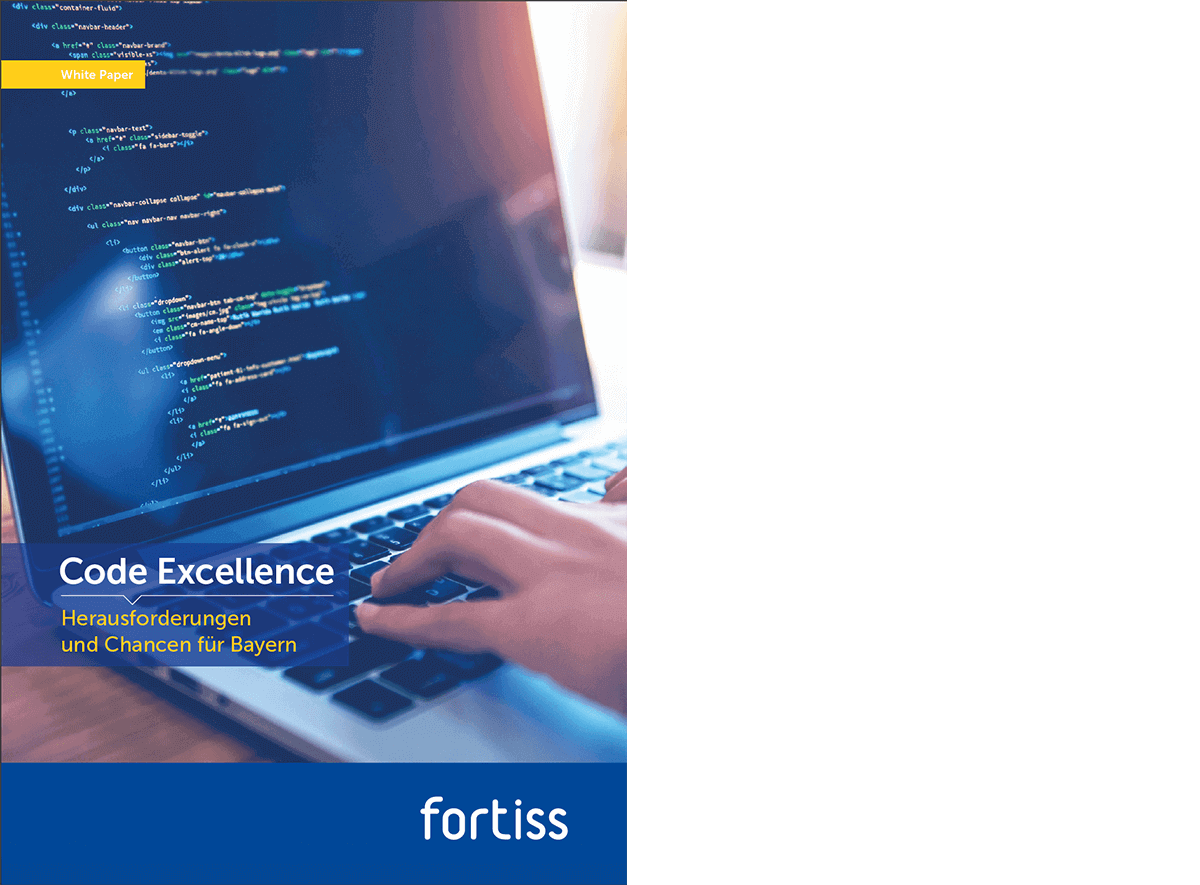
The whitepaper explains the fundamental challenges and trends in software engineering for Bavarian companies and concludes with concrete recommendations. Bavaria has special requirements for software development and quality assurance due to many engineering and manufacturing companies. A lot of companies struggle with requirements engineering and software testing due to a lack of testing guidelines and an understanding of qualitative software. The demand for agile methods and DevOps, which seem to be already rather understood worldwide, is increasing in Bavaria. Globally, there is a higher demand for AI, Big Data, distributed ledgers, and web technologies.
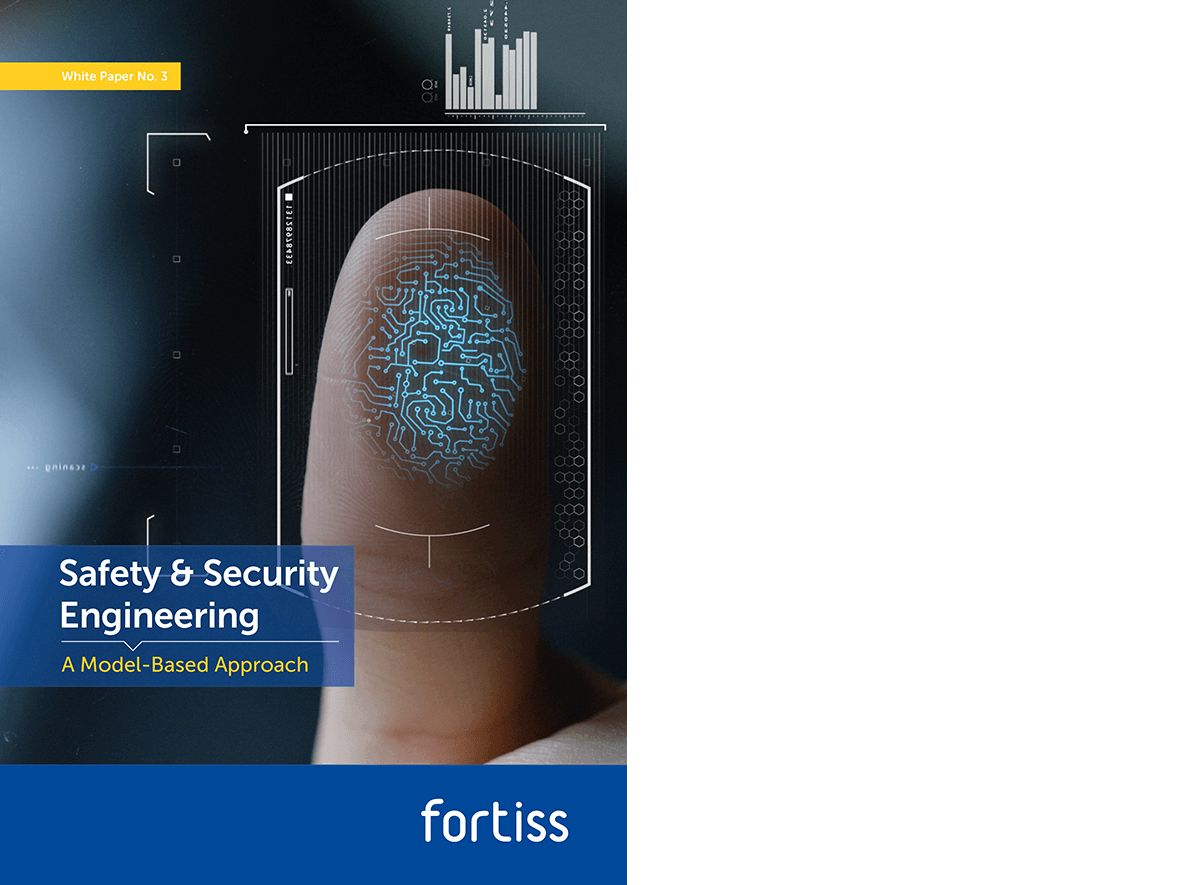
By exploiting the increasing surface attack of systems, cyber-attacks can cause catastrophic events, such as, remotely disabling safety mechanisms. This means that in order to avoid hazards, safety, and security need to be integrated, exchanging information, such as key hazards/threats, risk evaluations, and mechanisms used. This whitepaper investigates how model-based methods can be used to support the integration safety and security.
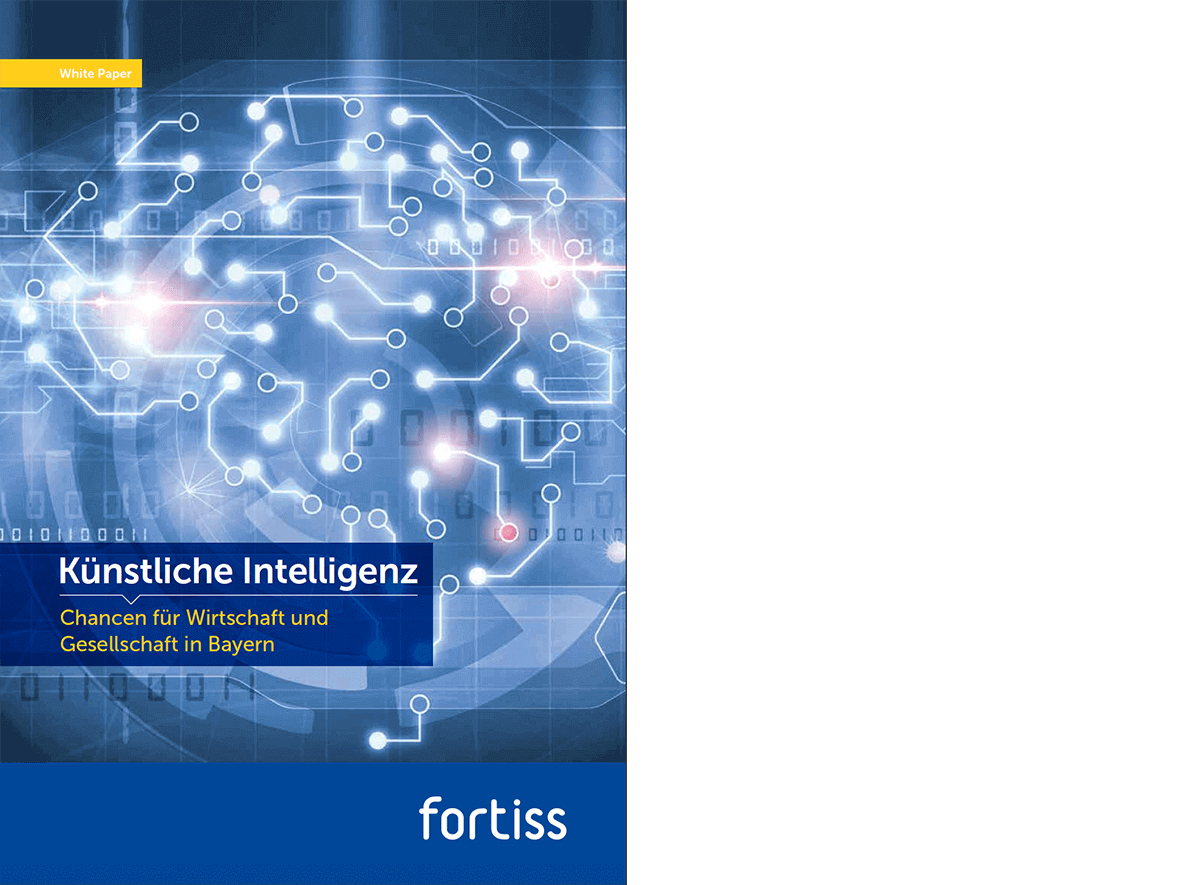
Artificial intelligence (AI) – a term that is currently more strained than almost any other. As one of the most popular subfields of computer science, research on it is steadily advancing and radiates far beyond the boundaries of the discipline. This whitepaper introduces the subject area of AI, highlights its application areas, and shows how its technologies impact economic growth in industrialized countries. The authors examine the strategies of successful nations, how Germany is positioned in this regard, and offer concrete suggestions on how the Bavarian economy can benefit from AI and which competencies need to be developed in order to strengthen Bavaria as an industrial location.